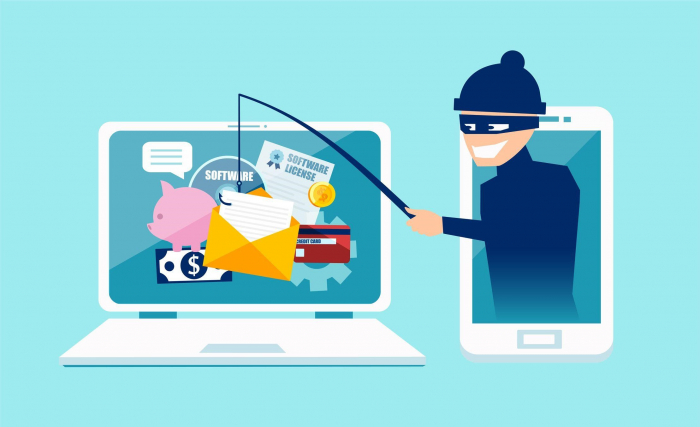
 Data Structure
Data Structure Networking
Networking RDBMS
RDBMS Operating System
Operating System Java
Java MS Excel
MS Excel iOS
iOS HTML
HTML CSS
CSS Android
Android Python
Python C Programming
C Programming C++
C++ C#
C# MongoDB
MongoDB MySQL
MySQL Javascript
Javascript PHP
PHPPhysics
Chemistry
Biology
Mathematics
English
Economics
Psychology
Social Studies
Fashion Studies
Legal Studies
- Selected Reading
- UPSC IAS Exams Notes
- Developer's Best Practices
- Questions and Answers
- Effective Resume Writing
- HR Interview Questions
- Computer Glossary
- Who is Who
How to recognize and protect yourself from Cybercrime?
If someone steals your wallet, they will only be able to get money; but if someone hacks your system, your whole life with what you do and where you go will be in front of him. So, yes, cyber threats are real things and can be extremely dangerous. As most of the people these days store all their information online, it becomes crucial to know how you can recognize and protect yourself from cybercrimes.

How to Recognize a Cybercrime?
Identity theft is the illegal use of someone else's personal information to obtain money or credit without informing that person. And it is easy to recognize this, as you might get bills for products or services you did not purchase or used, and even your bank account might have withdrawals you didn't expect. You continuously may get text messages or emails of the transaction you did not make.
Phishing attacks use emails to collect personal and financial information and infect your system with malware and viruses that help cyber attackers access your system. Hackers use legitimate-looking emails from some banks or brands that ask people to click on a link or download an attachment into the system, which may be infected with malware and viruses.
Imposter scams happen when you receive an email or call pretending to be from a family member, or friend, or someone you know requesting that they need money for something. Attackers use legitimate-looking emails that force people to send them money or personal information without even giving a second thought.
How to Protect Yourself from Cybercrimes?
It is also essential to have a little bit of awareness about how to protect yourself from cybercrimes.
Keep your software up-to-date, as updating all the software, specifically antivirus and anti-malware programs minimizes the chances of any loopholes in the program's security, ensuring that viruses, malware, and remote "hackers" stay out of your system.
The next thing is to change the default passwords with any device or software and replace them with some strong passwords that no one can guess. Also, don't choose some complex passwords that you cannot remember as it's essential to keep updating passwords time to time to ensure that it is safe and protected.
Always have multifactor authentication enabled, which gives you a physical key like OTP that helps you connecting your device to your smartphone. In many situations, websites require users to type in a different code from an app, text message, or email message when logging in, making it hard for any hacker to break into your network.
Use a virtual private network or VPN when you visit any suspicious sites, making your online actions virtually untraceable, or even when you are using a public network; it's always safe to browse using VPN.
Also, have all your sensitive data encrypted through various apps available on the internet and have a backup of all files stored at some safe place like your clouds on the internet so that no one can get access to it.
Install and use strong antivirus and security software and keep updating it regularly.
Just staying alert and wiping all your digital footprints regularly will help you protect your cybercrime system.

